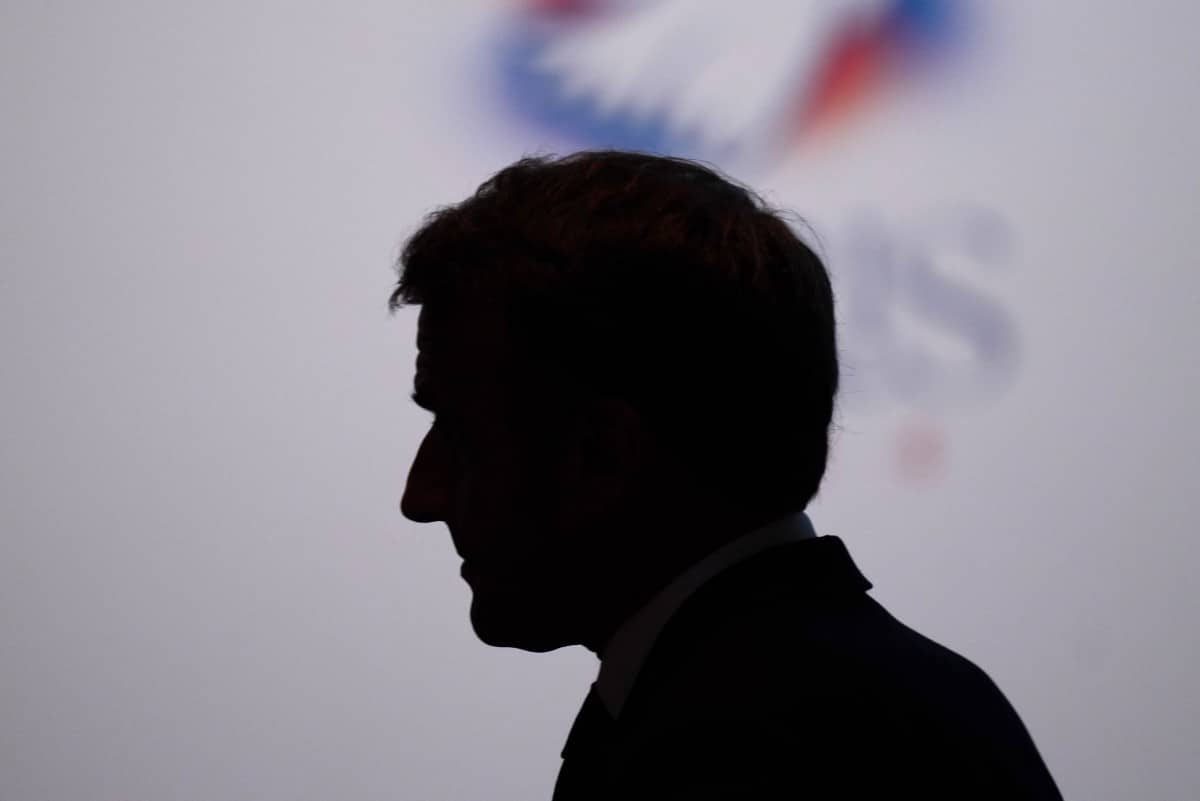
The silhouette of France’s President Emmanuel Macron appears as he attends the International meeting for Peace in Paris, on September 22, 2024. FILE PHOTO/Agence France-Presse
PARIS — President Emmanuel Macron weathered a turbulent political summer, but he feels isolated and is frustrated with his new right-wing government, according to people close to him.
Macron’s appointment of 73-year-old conservative Michel Barnier as prime minister ended two months of political chaos after snap legislative elections in July.
In line with his new role under the power-sharing arrangement, the centre-right president has taken a back seat on the domestic front, letting Barnier name a cabinet and concentrating on foreign policy.
READ: France’s Macron accelerates efforts to break PM deadlock
In public, the 46-year-old Macron is still all smiles, but in private, he has been seething.
“I did not choose this government,” Macron recently told a trusted confidante, who spoke to AFP on condition of anonymity.
“They make me feel ashamed,” the president said of some of the most conservative ministers.
The most hardline member of the new government, Interior Minister Bruno Retailleau, stirred controversy just days into the job, vowing to crack down on immigration and saying that “the rule of law is neither intangible nor sacred”.
READ: After Olympic dream, a rude political awakening for Macron?
After performing strongly in the snap election but failing to secure an outright victory, Marine Le Pen’s far-right National Rally party is a potential kingmaker that could decide the fate of Barnier’s fragile minority government.
‘Who cares?’
In government, Macron has few supporters.
Defense Minister Sebastien Lecornu is the only key minister to stay on from his previous cabinet.
Budget Minister Laurent Saint-Martin and Industry Minister Marc Ferracci, considered loyal members of Macron’s camp, have both been “poached”, the president fumed in private.
“I think the president is suffering,” said one official who knows him. “He has chosen to stand aside but it must be costing him a great deal.”
Macron, who has been known for his top-down leadership style since coming to power in 2017, admits it is a big adjustment.
“For the past seven years, a lot of things have been steered from the Elysee Palace,” Macron acknowledged privately. “I’m no longer going to initiate public policy.”
But he has vowed to keep up the fight.
“Macron is unhappy… but not more than that,” said one friend, adding Macron had told him he needed “warriors”.
But even some members of Macron’s camp cannot forgive him for the political risk he took when he called the snap election after the far-right made gains in European Parliament elections in June.
Many MPs in Macron’s centre-right Renaissance party are still “bruised” by the election and less inclined to follow the Elysee lead, said one lawmaker.
“Loyalty to the president is not what it used to be,” added another.
One ally bluntly said he was no longer interested in the wishes of the president, who must step down at the end of his second term.
“Who cares? Macron isn’t a candidate in 2027, is he?” he said.
‘At people’s side’
Macron’s relationship with 35-year-old Gabriel Attal soured after France’s youngest-ever prime minister had to hand over power to Barnier after less than a year in the job.
But he still has a number of loyal friends, including former interior minister Gerald Darmanin. Macron also regularly dines with members of parliament.
One lawmaker said that at a recent meeting the president had sounded “very critical” about Barnier’s work.
The French leader does not shy away from sparring with government members in public or expressing his opinion on economic policy.
Speaking to broadcaster France Inter recently, Macron said that immigration was not necessarily a “bad” thing, in a thinly veiled riposte to the hardliner Retailleau.
He warned Barnier, who presented a deficit-slashing budget on Thursday, against cutting social spending or overtaxing the rich.
“The solution must not be a short-term adjustment,” Macron said.
The president said it was his job to ensure the “independence” and “stability of the country”, insisting his priority was “the interests and unity of France.”
Often criticized for being arrogant and disconnected from reality, he indicated he wanted to reconnect with ordinary people.
Speaking privately, Macron said he wanted to be present in “people’s everyday lives”, to be someone the French can turn to in their time of need.
“Like a court of appeal, at the side of the French people.”